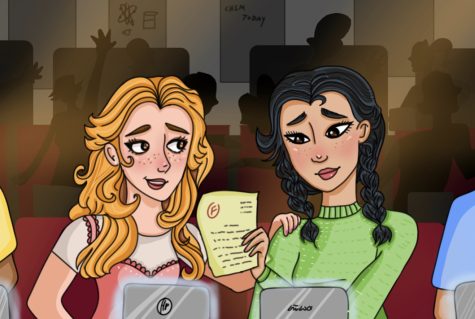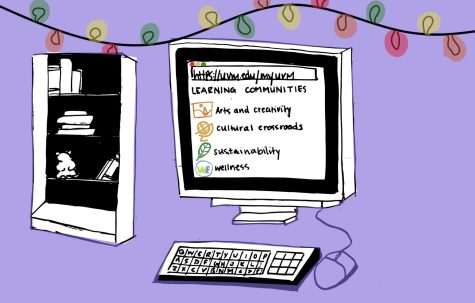Why religion should be discussed
In new company, the rules of etiquette most often dictate that there are three topics inappropriate for polite discourse – religion, politics and money.
Access news coverage from any reputable source and stories are dominated by all three. If we are to remain vigilant about speaking with well-formed opinions, we must gain the background necessary to process the information the media delivers us productively.
Arguably the most taboo of the prohibitions remains religion. I argue that religion may be the most important to have educated knowledge about. Religion is often thought to be an individual concern, but news sources, outraged hashtags and protests around the country and on our campus would beg to differ.
Religion is more than just the genocidal mass murders of Nigerians by the principles of Boko Haram, the practice of voodoo in the Caribbean islands or the independent Baptist patriarchal family dynamics of the Duggar’s of TLC’s “19 Kids and Counting.” Religion is also a Passover seder hosted by Hillel, your friend quietly praying before eating a meal in Cook Commons and the student arguing the irrefutability of science through atheism.
We should want to study religion because it is all around us. Daily rituals as simple of rolling over every morning to check your phone, to mindful practices of yoga or even the culturally appropriated Hindu spring festival of Holi repurposed as secular color runs.
In studying religion we can both understand and combat the prejudice that still prevails with post-9/11 Islamophobia, analyze pagan and Wiccan practices and deconstruct the rhetoric sometimes used in Christianity to justify heterosexism and homophobia. We can problematize how the civil rights movement is written in history books as secular, when in fact it was a religiously driven endeavor.
Whether or not you believe religion is a problem or a solution, it is a medium through which people are interacting with one another and the world around them on a daily basis.
It shows up when Pentecostal Christians speak in tongues, when indigenous peoples fight in court to keep tourists out of their ancestral grounds and when people debate whether prayer helps those undergoing medical procedures. The study of religion is that of people, cultures and histories. It aids in the nuances between the thoughts of those calling for action from pulpits and those responding from the pews.
It highlights how “Westerners” are incorrect in disregarding the acts of the violence by ISIS as an invalid form of Islam. It underscores the ways in which religion may be a social construct, but is still nonetheless potent for those that it does real work for.
Our University has a strong religion department interested in breaking down what religion is, what it does for its participants and how it can be usefully applicable to understanding peoples, places and realities.
Whether you want to know why Japanese Shinto practitioners are concerned with cleanliness, how nationalists rallied behind the image of mother India to form a coherent post-colonial nation-state or how biblical narratives were used both to justify slavery and emancipation, religion at UVM seeks to work through it.
Religion is being taught, debated and lived all around us. Even our Constitution ensures the liberty to believe whatever you would like, but not necessarily embody those beliefs in practice. With Indiana’s controversial religious freedom law, the killings of Muslim students at UNC over an alleged parking dispute and even Star Wars fans living by the ways of the force – religion is being discussed.
Join the conversation.











